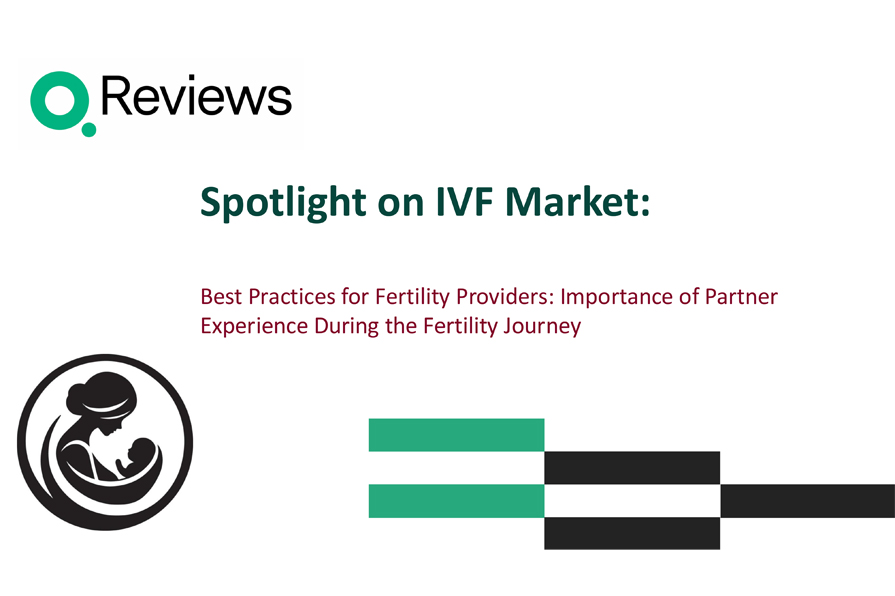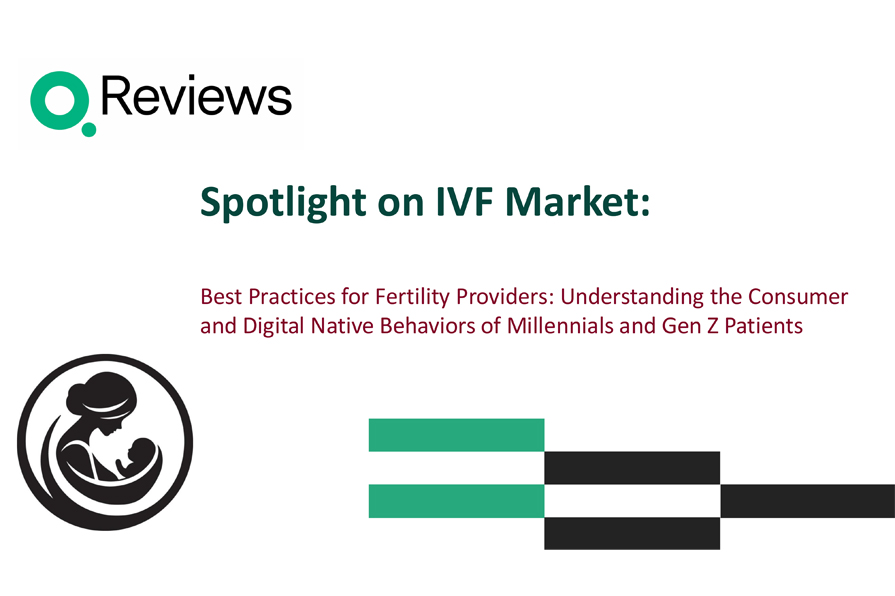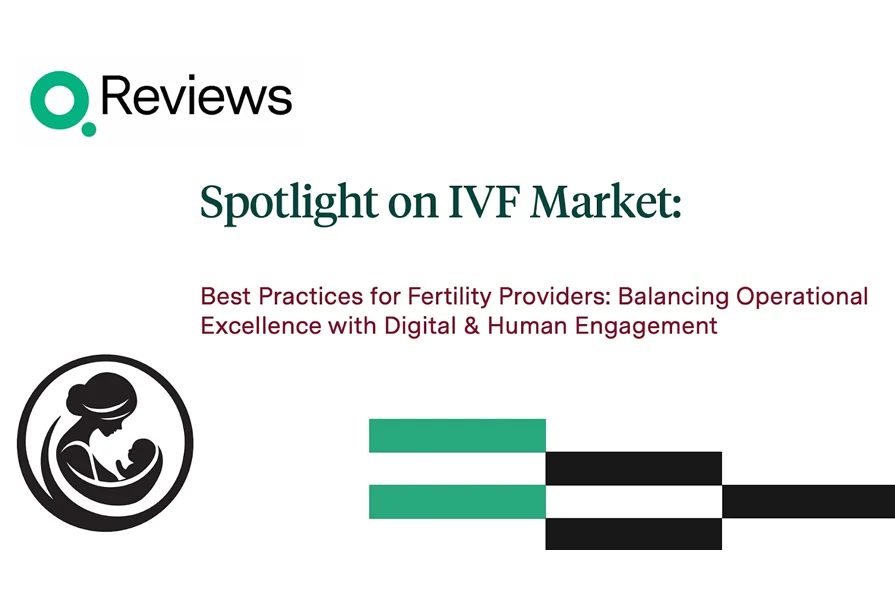
Why Real-Time Patient Feedback and Service Recovery Are Critical for Fertility and IVF Practices

In today’s healthcare landscape, patients are no longer passive recipients of care. They’re empowered consumers, and nowhere is that more evident than in the field of fertility and reproductive health. Fertility patients are often investing tens of thousands of dollars out of pocket—financially, emotionally, and physically—into a deeply personal and time-sensitive journey.
With this reality comes heightened expectations for transparency, communication, and personalized service. Fertility practices that fail to meet these expectations risk losing patients—not only to other clinics but also in terms of online reputation, word-of-mouth, and long-term brand trust.
At the heart of delivering world-class fertility care lies one often underutilized strategy: real-time patient feedback and service recovery.
1. Real-Time Feedback Is a Must in the Era of Healthcare Consumerism
Fertility patients are younger, digitally native, and expect immediacy. According to a report by Rock Health, over 80% of millennials in the U.S. have searched for health information online, and over 60% expect digital access to health services. For fertility clinics, this means that patients are evaluating not just the medical quality but the overall service experience—from ease of scheduling to bedside manner to billing transparency.
Practices like Kindbody and Maven Clinic have recognized this shift and built tech-forward fertility experiences that integrate app-based feedback, messaging, and even concierge-level support. These companies aren’t just providing IVF—they’re creating a service experience that mirrors the expectations set by industries like hospitality and retail.
Traditional clinics that rely solely on post-treatment surveys or annual feedback reviews are simply out of step with what modern fertility patients expect.
2. Real-Time Feedback Powers Real-Time Service Recovery
No matter how advanced your technology or skilled your clinical team, things will go wrong. A nurse may miss a callback, a patient might get incorrect insurance information, or a cycle may be canceled due to a miscommunication. What matters most is how your clinic responds in the moment.
Real-time service recovery isn’t just a buzzword—it’s a loyalty driver. According to research published in the Harvard Business Review, when service recovery is handled swiftly and empathetically, customer satisfaction can actually increase beyond pre-issue levels—a phenomenon known as the “service recovery paradox.”
A real-world example: CCRM Fertility, which has clinics across the U.S., began implementing real-time SMS-based patient feedback mechanisms to capture experiences as they happen. When a patient reported frustration about lack of clarity on hormone monitoring schedules, the clinic’s care team intervened the same day—resolving the issue and reducing the likelihood of a negative online review.
The takeaway? The faster you know about an issue, the better your chance of turning a dissatisfied patient into a loyal advocate.
3. Concierge-Level Expectations in a Crowded, Competitive Market
Fertility is one of the most competitive specialties in healthcare. With over 450 fertility clinics in the U.S. alone (per CDC’s ART report), patients have no shortage of options. Clinics that once relied on physician referrals or proximity are now being evaluated on service experience, brand identity, and reviews.
Yet many clinics continue to operate like high-volume factories, where the focus is on throughput instead of personalization. Patients complain of long wait times, rotating care teams, and poor communication. In a study published by Fertility and Sterility, one of the top causes of patient dissatisfaction was not medical error—but feeling uninformed and uncared for.
Practices that implement real-time feedback loops can detect when the experience starts to feel impersonal and take action. Whether it’s through proactive check-ins, targeted follow-ups, or dedicated patient liaisons, service personalization is now a strategic advantage.
4. Feedback Is More Than Star Ratings—It’s Operational Intelligence
Too often, patient feedback is viewed narrowly through the lens of online reviews or Net Promoter Scores (NPS). But qualitative feedback can be a goldmine of insight into how your practice actually runs day to day.
For example, at a leading IVF center in California, anonymous patient feedback revealed that a particular ultrasound room consistently ran late—causing a cascade of delays throughout the day. It turned out the room was being double-booked due to a software configuration issue. No one on staff had flagged it, but multiple patients did.
Feedback can also uncover serious issues around communication gaps, emotional support, patient safety, or even bias and equity in care delivery. By capturing and analyzing this feedback in real time, practices can proactively address systemic issues before they spiral into major reputational or clinical risks.
5. AI and Natural Language Processing Enable Smart Routing and Timely Intervention
Today’s feedback platforms don’t just collect comments—they analyze them. With AI and Natural Language Processing (NLP), unstructured patient comments can be categorized by sentiment, topic, urgency, and more.
Platforms like Quality Reviews now allow fertility practices to automatically route feedback to the appropriate team member. A patient mentioning confusion about pricing? The comment gets directed to the finance coordinator—not the nursing staff. A concern about medication side effects? It’s sent immediately to the clinical lead.
This not only speeds up resolution but ensures that the patient feels heard by the right person—without bouncing between departments. In a field as emotionally intense as fertility care, this kind of intelligent, empathetic response can make all the difference.
Conclusion: Listening Is a Clinical Imperative
In fertility care, the stakes are deeply personal. Every interaction matters. And while clinical outcomes remain paramount, patient experience is what defines a practice’s reputation and longevity.
Real-time patient feedback and service recovery are no longer optional—they’re operational necessities. Clinics that implement systems for proactive listening, intelligent triage, and timely intervention will not only improve satisfaction—they’ll improve outcomes, loyalty, and team morale.
Fertility is a service business. And the best service businesses don’t wait until it’s too late to listen.








